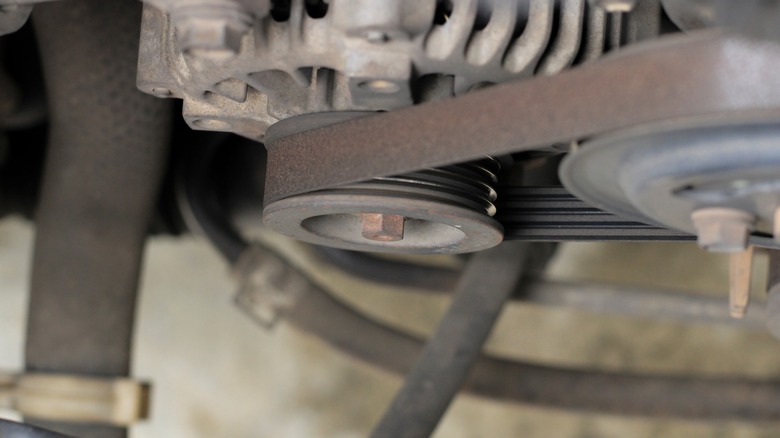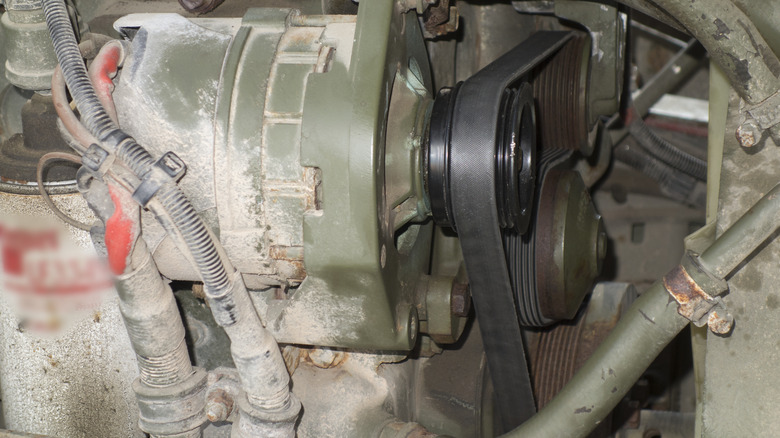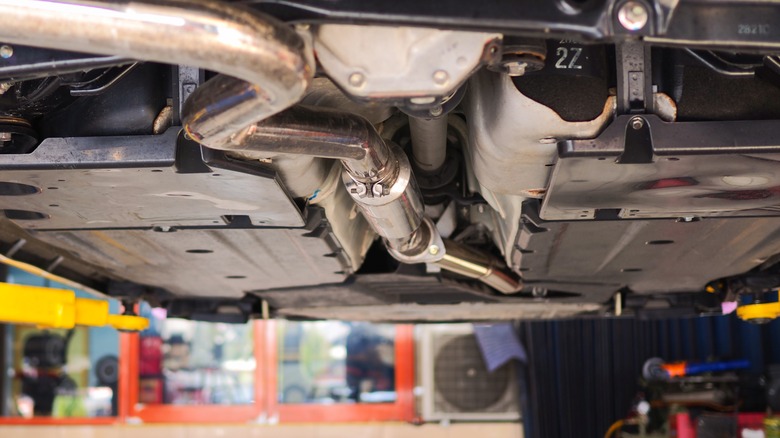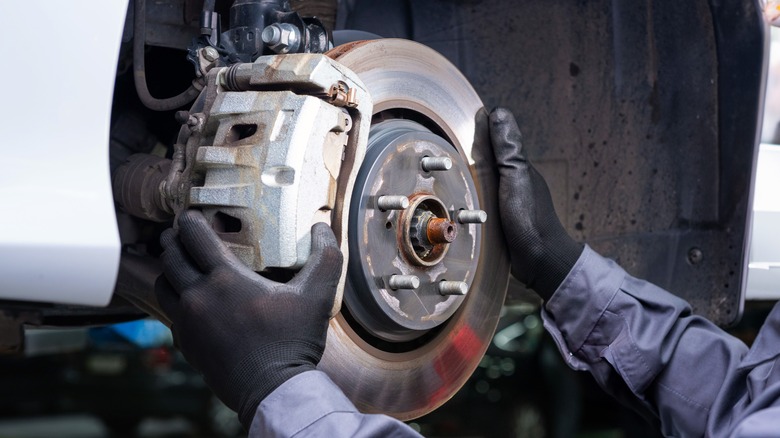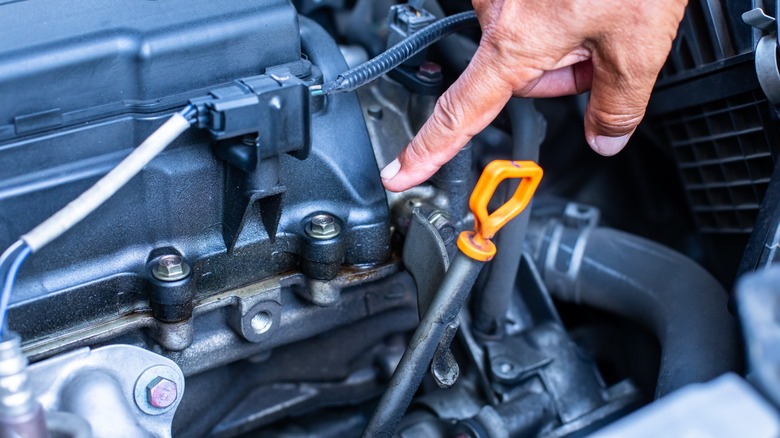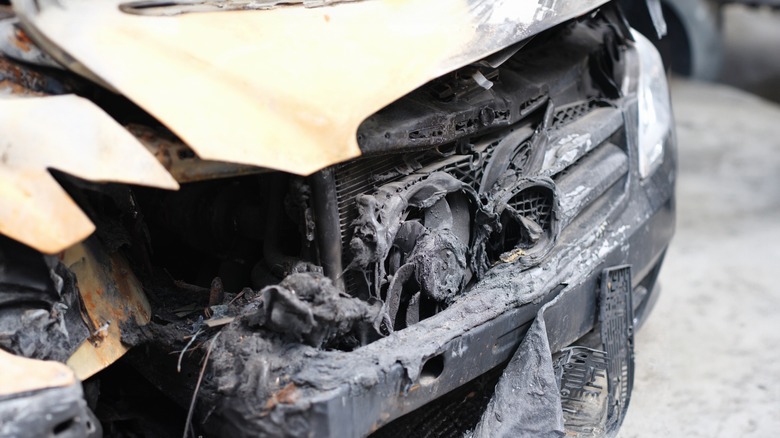5 Reasons Why Your Car Might Smell Like Burning Rubber
We may receive a commission on purchases made from links.
Driving can be an anxiety-inducing experience. You have to stay constantly aware of pedestrians, changing weather and road conditions, and potentially dangerous drivers. Strange noises or smells coming from your car can also ratchet up your stress level. The cost of auto repairs can be hard to estimate, but recognizing that weird odor coming from somewhere in your car can put you in a better position when it comes time to deal with a mechanic. I have been working on my own cars since I was a teenager, and in the decades since have driven hundreds of thousands of miles back and forth across North America.
During that time, I have experienced nearly every conceivable mechanical failure, from broken belts and hoses to blown engines and transmissions. Standing on the roadside diagnosing car issues is as stressful as going to the dentist, but when your car starts to smell like burning rubber, it's best to get to a safe spot and see what's causing the strange odor. Some potential causes of a burning rubber smell are minor issues that can be addressed at your convenience, but others are potentially dangerous situations that need immediate attention.
An improperly tensioned belt or seized pulley can emit a burning smell
Another good place to do quick visual and sniff tests if you smell burning rubber is near the belts and pulleys on the front of your engine. While the engine is off, check the belts for proper tension. Belts that are too loose will rub against the pulleys and cause a burning smell, and belts that are too tight can lead to seized bearings in your engine accessories, which give off a similar smell as they burn out. A faulty idler or tensioner pulley can be the culprit as well.
With the engine off, all of your belts should deflect about a half inch at their longest points between pulleys. With the engine running, stand to one side and see if the belts are turning on an even plane and if the pulleys are turning without wobbling. Just make sure you keep your hands, hair, and jewelry well clear of any moving parts. If neither of these checks reveal any obvious issues, try removing the belt or belts and turning the accessories by hand. This will tell you if any of them have bad bearings and are ready to be replaced.
New or dying catalytic converters also put out strange smells
Your exhaust system may be the cause of a strange smell. This can be a sign of too much unburned fuel in the exhaust or an improperly installed converter, so get it checked out if the smell persists. Similarly, a converter that is on its last legs will emit a smell like rotten eggs or burnt plastic as the internal structure of the converter begins to disintegrate.
Sometimes a failing catalytic converter will light your dashboard's check engine light, but this is not always the case. Catalytic converters contain precious metals like platinum, palladium, and rhodium, and are expensive to replace. This might make it tempting to bypass a failing converter, but this is illegal in all 50 of the United States.
Strange smells in the cabin can also come from leaks in the exhaust system components or the joints that connect them. Inhaling exhaust gases can be dangerous or even fatal, so if you suspect that exhaust is getting into the interior of your car, drive with all the windows open and have it looked at immediately.
Brake problems can cause a burning rubber smell
Often, a burning rubber smell is a sign that your brakes need maintenance or replacing. If you're parked in a safe place away from traffic, it's ok to give each wheel a good sniff to see if that's where the smell is coming from. A burning smell from your brakes can be simply from an improperly adjusted parking brake, a stuck caliper, excess brake dust, or worn brake pads. Replacing your brake pads is a simple job you can do yourself. More serious causes of smelly brakes include leaking brake fluid or overheating brakes, both of which are potentially dangerous conditions.
Usually, you can identify brake issues by jacking up your car and removing the wheels. If you suspect the problem is with your brakes and don't trust your own diagnostic abilities, take your car to a mechanic immediately. Sometimes you can smell burning brakes while driving, and there is nothing at all wrong with your car. This smell is quite powerful, and you may be picking up on someone else's vehicle, or driving near a tractor-trailer that is descending a steep hill and using the trailer brakes to slow down.
Oil or coolant leaks can generate strange smells
The human nose is not a foolproof detection device, especially when you factor in the anxiety from not knowing if your car is about to burst into flames. Sometimes what you think is burning rubber is actually oil that is leaking from the valve covers and coming into contact with the hot exhaust manifold. Burning oil from worn piston rings can also emit a smell much like burning rubber. After all, synthetic rubber is a compound made up mostly of crude oil, so it's to be expected that under heat these two substances will give off similar smells.
Hot coolant coming from a leaking cylinder head gasket, cracked reservoir, or improperly clamped hose gives off a sweet smell (sometimes described as smelling like pancake syrup) that can be mistaken for burning rubber, especially if the coolant is dripping onto hot exhaust components.
The smell may be coming from a budding electrical fire
Another potentially dangerous source of a burning rubber smell in your car is an impending electrical fire. Wiring that is overloaded with current or has damaged insulation is often the culprit here, and some older cars from the Mopar family of brands are designed to send all the high-amperage current going back to the alternator through small-gauge wiring on the ammeter gauge. Some classic Mopar owners install a thicker wire between the alternator and starter relay, and replace the now-bypassed ammeter with a volt meter.
Wiring damage can be hard to spot, and most modern cars have sufficient fire safeguards as part of their electrical system design. Be especially wary of wiring that is routed near exhaust manifolds or pipes, as the heat from them can melt plastic wire loom and rubber wire insulation. You can buy a small fire extinguisher on Amazon or at most local auto parts stores that is capable of putting out chemical and electrical fires. Look for one with a B and C classification; B-rated extinguishers are suitable for oil and gasoline fires, and C-class extinguishers are for electrical fires. Carrying a $25 fire extinguisher under your front seat or in your trunk can save you thousands of dollars in an emergency; you might also be able to help someone else by having one handy and being in the right place at the right time.
